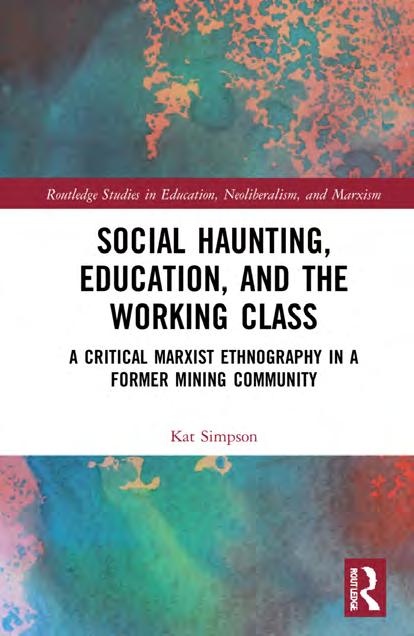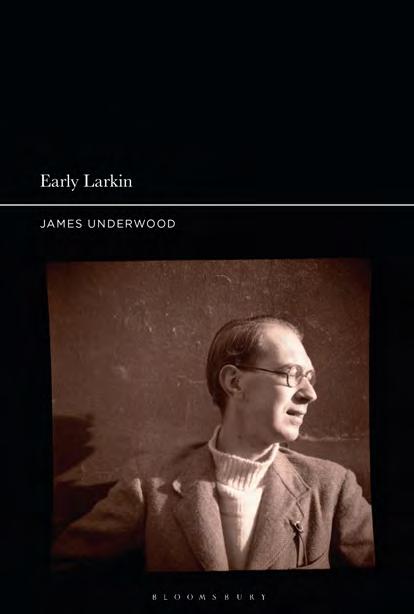
4 minute read
Early career researchers
Helping future healthcare through AI
To some of us, terms such as artificial intelligence (AI) and machine learning can still seem unsettlingly sci-fi, not least when applied to healthcare.
Advertisement
Dr Tianhua Chen
It’s an anxiety that Dr Tianhua Chen understands – despite being a Senior Lecturer in Artificial Intelligence and Programme Lead for the University’s MSc in Artificial Intelligence. He also undertakes extensive collaborative research in AI and healthcare, while sitting on the editorial board of the prestigious Artificial Intelligence in Medicine journal. Fusing AI with healthcare excites Dr Chen – not least “because it’s a matter of human life eventually”. However, he is also an enthusiast for developing ‘Explainable AI’ – recognising the need to make the technology more transparent for patients. Born in China, Dr Chen arrived at Huddersfield as a Research Fellow after completing both his MSc and He quickly engaged with colleagues on a major on-going project, funded by South West Yorkshire Partnership NHS Foundation Trust, to study AI’s potential in diagnosing attention deficit hyperactivity disorder in adults. While the final diagnosis is made by a clinician, Dr Chen says the AI approach is saving valuable clinical time and reducing waiting times. This focus on the use of AI to understand human health was also evident in recent research into the pandemic’s impact on university students’ mental health. However, having completed PhD on fuzzy systems (an interpretable AI technique that mimics human reasoning), one of his proudest achievements was leading research in that field selected for the
PhD in Computational Intelligence at Aberystwyth University in 2017. ‘spotlight’ slot in a top journal, which he is applying to support clinical decision making.
Welcoming ghosts into the classroom
Positive stories about communities hit by de-industrialisation are notable by their rarity. They are often presented as deprived, barren or defunct places with little hope or potential. But Dr Kat Simpson, Senior Lecturer in Education and Community Studies at the University of Huddersfield, has – to some extent – broken the mould with her research into education in ‘Lillydown’, a former coalmining village in South Yorkshire.
Dr Kat Simpson
Dr Simpson’s work emphasises the ways in which Lillydown’s industrial past continues to haunt the processes of education and social life broadly. She does not brush over the lingering corrosive effects of deindustrialisation. But Dr Simpson’s research also reveals how coming to know the fullness of a social haunting – the loss, injury, and ‘goodness’ – can, at least sometimes, help refashion education in positive ways. It shows, for example, how the community spirit and traditional ‘pit humour’, that often characterised mining communities, can still be used to help forge and maintain authentic and encouraging relationships between staff and pupils. Dr Simpson’s research also illustrates how the school has, to some degree, taken over from its miners’ institutes and working men’s clubs to provide a social and cultural hub for the village. Her research shows how the school, in various ways, is rooted in historical rhythms and ways of being that cultivate a positive relationship with education for pupils who may otherwise be alienated by formal processes of schooling and traditional forms of authority. The school is embracing ghostly matters of the past, even though such matters are often unknown. Dr Simpson calls for a conscious reckoning with both the injuries and goodness of the past in order to harness the potential of young people in places like Lillydown.

SOCIAL HAUNTING, EDUCATION, AND THE WORKING CLASS
A CRITICAL MARXIST ETHNOGRAPHY IN A FORMER MINING COMMUNITY
Social haunting, education, and the working class

A creative look at Larkin
Yorkshire-born Dr James Underwood is developing an international reputation in the study of the county’s two great twentieth-century poets: Ted Hughes and Philip Larkin.
Dr James Underwood
A Senior Lecturer in the University’s Centre for International Contemporary Poetry, in 2021 Dr Underwood published the first book-length study of Larkin’s early work, which former Poet Laureate Andrew Motion recently reviewed in the Times Literary Supplement. It is based on an innovative counter-narrative to the widely held academic belief that Larkin’s early work represented a ‘false start’ before the poet found his voice by abandoning a focus on Yeats in favour of Hardy. Dr Underwood’s book, Early Larkin, suggests that the works he published under the pseudonym of an invented lesbian writer, Brunette Coleman, in the early 1940s, stimulated an ‘interest in everything outside himself’ – a path that led to the great poetry of his later life. Dr Underwood’s wider research spans twentiethand twenty-first-century British, Irish and American poetry. He joined the University of Huddersfield in 2016 as Research Fellow in Modern and Contemporary Literature and a year later the British Academy recognised his potential with a Rising Star Engagement Award. This provided funding for a project that allowed academics working in literary studies to engage with members of the public with a passion for literature. Dr Underwood’s commitment to Hughes and Larkin extends to various roles including membership of the Ted Hughes Network (a centre of excellence for Hughes-related research, teaching and public engagement), a directorship of the Elmet Trust (a charity that preserves Hughes’s birthplace and promotes his work), and chairing the Philip Larkin Society’s Publications Advisory Board.
Early Larkin











